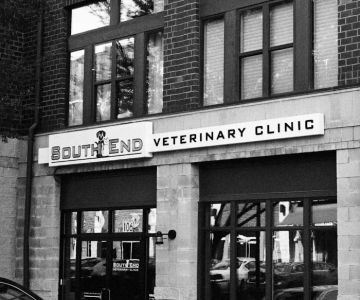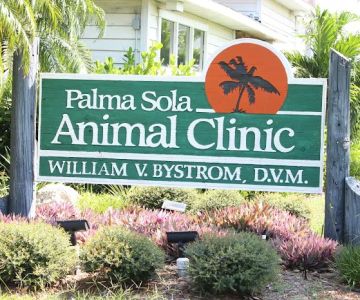What is the Veterinary Oath and Why It Matters in Veterinary Practice
- 1. What is the Veterinary Oath?
- 2. The Importance of the Veterinary Oath in Practice
- 3. Ethical Duties and Responsibilities of a Veterinarian
- 4. Real-life Examples of the Veterinary Oath in Action
- 5. Final Thoughts on the Veterinary Oath and Its Role in Veterinary Care
1. What is the Veterinary Oath?
The veterinary oath is an ethical pledge taken by veterinarians as they embark on their professional journey. Much like medical doctors, veterinarians swear to uphold certain principles that govern their practice, ensuring they prioritize animal welfare and adhere to high standards of care. The oath is typically taken during a veterinary school graduation ceremony and symbolizes a commitment to the ethical treatment of animals, as well as dedication to the health and well-being of both animals and their human companions.
While the exact wording of the veterinary oath can vary slightly from country to country, the core principles remain the same. It is a promise to use knowledge and skills to prevent and treat illness in animals, as well as to serve society with integrity and professionalism. In the United States, the veterinary oath includes a commitment to not only caring for animals but also to contributing to public health and addressing the needs of society as a whole.
2. The Importance of the Veterinary Oath in Practice
The veterinary oath is a cornerstone of the veterinary profession, setting a moral framework for veterinarians to follow throughout their careers. It establishes a veterinarian’s responsibilities not only to animals but also to the community, emphasizing the importance of ethics in decision-making. The oath reminds veterinarians that their work is not simply about treating animals, but also about considering the broader implications of their actions on society and the environment.
One of the most important aspects of the veterinary oath is its focus on the well-being of animals. Veterinarians are entrusted with the care of animals, often in vulnerable conditions. The oath serves as a constant reminder of their duty to act in the best interests of their patients, which may involve difficult decisions, such as euthanasia or providing end-of-life care. For example, a veterinarian might need to decide whether a pet’s suffering outweighs the potential for recovery—this is where the principles of the veterinary oath guide their decisions with compassion and integrity.
3. Ethical Duties and Responsibilities of a Veterinarian
The veterinary oath outlines several core ethical duties that veterinarians must uphold in their practice. These duties extend beyond simply providing medical care; they also encompass the values of honesty, fairness, and respect for life. Let’s explore some of the key ethical responsibilities that come with taking the veterinary oath:
- Promoting Animal Welfare: Veterinarians are responsible for ensuring the health and well-being of animals, whether through preventative care, treatment of illnesses, or providing comfort and relief from suffering.
- Confidentiality: Similar to the medical profession, veterinarians must maintain confidentiality regarding their patients (animals) and the information shared by clients.
- Professional Integrity: Veterinarians must be honest with clients about the health of their pets and the treatment options available, always prioritizing the welfare of the animals.
- Advocating for Public Health: Veterinarians play a key role in safeguarding public health by monitoring diseases that may spread from animals to humans (zoonotic diseases) and by ensuring the safety of the food supply.
These duties reflect the veterinarian’s obligation to provide not only medical expertise but also ethical guidance in all aspects of their practice. The veterinary oath encourages veterinarians to consider the larger implications of their actions, always prioritizing the health and safety of animals and humans alike.
4. Real-life Examples of the Veterinary Oath in Action
The veterinary oath is not just a ceremonial pledge—it plays a crucial role in shaping everyday veterinary practice. Let me share a personal experience that highlights the impact of this oath. Early in my career as a veterinarian, I was faced with a particularly difficult case: a dog with a terminal illness. The family had been devastated by the diagnosis, but the dog still had moments of joy and energy. It was clear to me that the family wanted to do everything possible to keep the dog alive, but as a veterinarian, I had to balance their wishes with what was best for the animal’s well-being.
Guided by the principles of the veterinary oath, I worked closely with the family to help them understand the options available. In the end, we decided on a course of palliative care that would allow the dog to live comfortably in its final months. This experience reaffirmed the importance of the veterinary oath, which requires me to consider both the emotional and physical aspects of veterinary care and to act with compassion and honesty.
5. Final Thoughts on the Veterinary Oath and Its Role in Veterinary Care
The veterinary oath is far more than just a formality—it is a guiding principle that shapes the entire veterinary profession. It serves as a moral compass, reminding veterinarians of their ethical obligations to animals, their clients, and society at large. By taking the veterinary oath, veterinarians commit to providing high-quality, compassionate care while adhering to a strict ethical code. This commitment ensures that the veterinary profession remains one that is both trusted and respected.
If you’re considering a career in veterinary medicine, understanding the veterinary oath and its ethical significance is crucial. It’s not just about medicine; it’s about the duty to act with integrity, to be a voice for those who cannot speak, and to always prioritize the health and welfare of animals. If you’re passionate about animals and have a deep sense of empathy, the veterinary profession—and the oath you’ll take—may be your calling.











